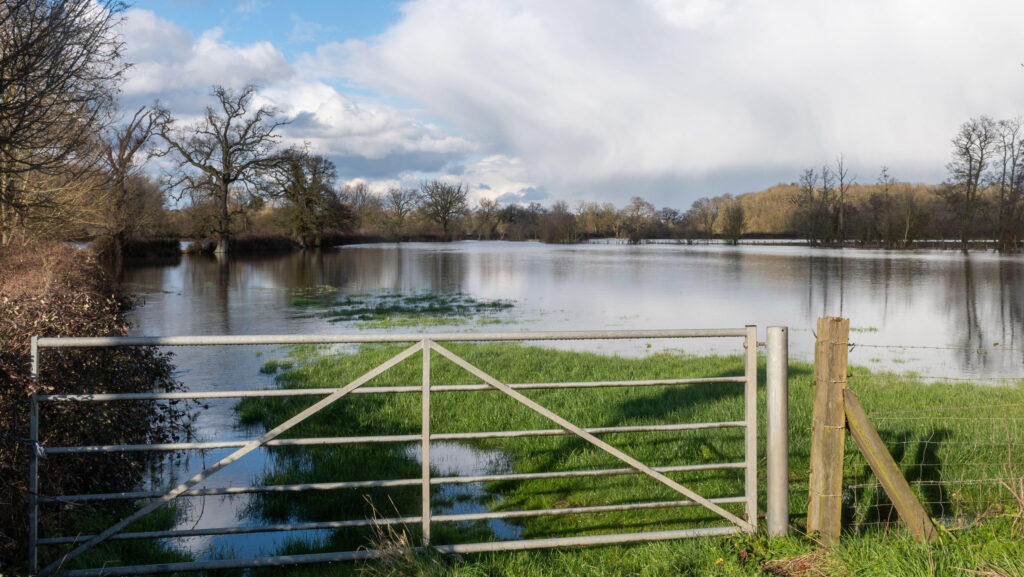UK farmers ‘on the brink’ amid financial and mental pressures
 © Gillian Pullinger/Alamy Stock Photo
© Gillian Pullinger/Alamy Stock Photo British farmers are “on the brink” of quitting the industry following months of wet weather and low profits, farming groups have warned.
Prolonged wet weather, squeezed margins and falling farm support have added enormous financial and mental strain, which has left more farmers considering leaving the sector.
Senior officials from the AHDB and the Soil Association issued the warning at a media briefing by the Energy and Climate Intelligence Unit (ECIU) think tank ahead of the second annual Farm to Fork summit being hosted by prime minister Rishi Sunak at Downing Street on Tuesday (14 May).
See also: ‘Halt BPS cuts’ says NFU as farmer confidence plummets
Food security will be the main topic of discussion at the summit and farmers and industry leaders will be expecting Mr Sunak to deliver policies to back British farming and domestic food production.
The UK has seen the wettest 18-month period since records began in 1836 and there have been 11 named storms since last September.
Tom Clarke, AHDB Cereals & Oilseeds Sector Council chairman and a fourth-generation Fenland farmer, said the prolonged wet weather has taken a huge toll on farmers, who have planted fewer crops.
“It’s been a hell of a year. I think farmers across the UK are really on the brink, not just mentally, but financially and ecologically as well,” said Mr Clarke.
“It’s a fact that this year, this country is going to be growing less food and very likely harvesting less food. But everybody still needs to eat.”
Mr Clarke farms wheat, sugar beet and other combinable crops on his 405ha arable farm near Ely in Cambridgeshire, which receives relatively less rainfall in the East compared to elsewhere in the UK.
Fields uncropped
But the farmer said this year even he has had to pull tractors out of fields because they cannot cope in the wet conditions. For the first time in decades, fields will remain uncropped after floods left areas “knee-deep” in water.
Fertiliser and chemicals have been applied late or not at all, disease levels are high too, so crops are in bad condition, he added.
The AHDB’s arable cropping survey for April revealed that less than 50% of wheat was rated in good or excellent condition, whereas this time last year almost 90% of the wheat crop was reportedly in better than normal condition.
A separate AHDB report released earlier in the year showed that cropping area is also down this year, with an 80% increase in arable fallow or intended fallow land.
Mr Clarke said the prolonged wet period had left farmers no opportunity to catch up with spring plantings.
Helen Browning, chief executive of the Soil Association, who also runs an organic livestock and arable farm in Wiltshire, warned of a “potentially catastrophic” situation for society if politicians do not get environmental and farming policies right.
“At the moment, it feels as though farmers are carrying an undue proportion of the risk in terms of trying to manage their businesses at a time when they are making very little profit, if any at all,” she said, adding that “if you were economically rational, you wouldn’t farm”.
Long-term investment
The country needs to invest in the right kind of infrastructure and support for the long term to give farmers the confidence to continue producing the food on our plates, said Ms Browning.
“Actually, at the moment, a lot of farmers are considering their options and thinking about walking away from their farms,” she warned. “They could make far more money doing something else.”
Dr Hannah Cloke, professor of hydrology at the University of Reading, said to protect the nation’s food security, the UK must redouble its efforts to reduce greenhouse gas emissions and invest in sustainable farming practices, flood defences and soil health.
